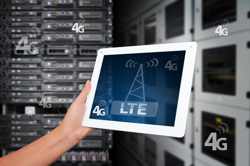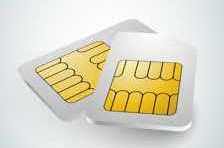 If you’re a regular traveller and you find yourself in places without a Wi-Fi connection, you might want to consider a Mobile Broadband option. The market has a ton of different options where you can either pay monthly or pay-as-you-go with options, such as SIM cards or USB dongles to get connected.
If you’re a regular traveller and you find yourself in places without a Wi-Fi connection, you might want to consider a Mobile Broadband option. The market has a ton of different options where you can either pay monthly or pay-as-you-go with options, such as SIM cards or USB dongles to get connected.
See Also: Laptops | Tablets | Smart Phones
Shops With Mobile Broadband Offers
Mobile Broadband Buying Guide

The Internet is now one of the most important things around. From tablets and online radios through to smart TVs and even your home heating, there’s little to nothing left in the world that can’t be either controlled or improved by getting online.
The way we connect to the Internet is changing all of the time, too. Gone are the days of dial-up, when a bizarre screeching sound would emerge from a modem allowing you to open a webpage in about half an hour. Instead we’ve got superfast fibre optic broadband getting you online in milliseconds or pubic Wi-Fi ensuring you are never out of touch for too long.
There are times, though, when you’re away from home and there isn’t any public Wi-Fi for you to connect to, so you need another option to stay online. That’s where mobile broadband comes in. Here’s our guide to what it is, and what you should keep an eye out for if you go looking for a mobile broadband device.
How Does It Work?
 Simply put, mobile broadband uses the same network as your mobile phone to connect to the Internet. It uses either High Speed Downlink Packet Access (HSDPA) or Long Term Evolution (LTE) technology in order to do this. HSDPA is the basis of a 3G connection, whilst LTE is the basis for 4G.
Simply put, mobile broadband uses the same network as your mobile phone to connect to the Internet. It uses either High Speed Downlink Packet Access (HSDPA) or Long Term Evolution (LTE) technology in order to do this. HSDPA is the basis of a 3G connection, whilst LTE is the basis for 4G.
In most cases you will be supplied with a device that will share your mobile broadband connection via a wireless network that all of your individual devices will then be able to connect to. This device is sometimes called a Personal Hotspot, Mobile Wi-Fi or even a Mi-Fi Device.
Though it uses a mobile network you don’t need to use your own mobile telephone to get online. Normally, in fact, you will be sold a device that is ‘always on’. This means that you don’t get charged for how long or how often you’re connected to the Internet, but rather you’re sold an amount of data and if you exceed that amount you pay for the excess. In some instances, you won’t get charged for excess data but instead the device will just slow down to the point that it will be virtually unusable.
It’s worth bearing in mind that even though the device doesn’t use your personal mobile phone to get online, it does still use a mobile network. That means that if you don’t get very good coverage on your mobile where you’re likely to want to use your mobile broadband, you’re not going to get very good coverage on your Mi-Fi device either.
That said, the joy of a mobile broadband device is that you aren’t tied down to a long-term contract, you don’t need to have a landline, and, of course, you can use it anywhere that you’ve got reception.
Not being tied down to a contract or a landline can be a big relief to a lot of people who use their mobile phone rather than a house phone, or who tend to move around a lot. It’s mainly only a serious option for your sole connection to the Internet if you’re not a heavy user, though, as the second you start watching films or downloading music, you’ll use up most of your allowance.
Who Is It Good For?
Mobile broadband isn’t for everyone. If you work at home or in an office and don’t tend to travel around much, then it isn’t really something you should consider, as the broadband you’ll get where you currently are will be significantly better than anything you’d get via a mobile broadband device.
If, however, you’re one of the following, then an investment in a mobile broadband device might just be worth thinking about:
 Regular Travellers – If you often find yourself on the road in places that you can’t always get access to a public Wi-Fi connection, then you should seriously consider using mobile broadband to get online. It will likely work out cheaper than constantly buying connection deals at hotels, and it will probably be more reliable too.
Regular Travellers – If you often find yourself on the road in places that you can’t always get access to a public Wi-Fi connection, then you should seriously consider using mobile broadband to get online. It will likely work out cheaper than constantly buying connection deals at hotels, and it will probably be more reliable too.- Homes without Landlines – If don’t really use a house phone and you only tend to use the Internet for things like browsing and emailing, then you might find it considerably cheaper to ditch your landline contract and go to a mobile broadband deal instead. Especially as plenty of mobile phone providers offer good deals on their mobile broadband for current customers.
- Those in Short-Term Lets – Not everyone owns their own home or is tied into a long-term contract in their home. If that includes you and you want to get online but you don’t want to be tied into a long-term contract in case you have to move, then look towards a mobile broadband deal.
- Business Users – If you are constantly on the move because of your job, whether travelling from city to city by train or having to stop at service stations to try to get some business done, using a mobile broadband device could save you time and make you money.
- Students – Always keen to save a penny or two when possible, students are the ideal customer for a mobile broadband deal. It will probably be cheaper than getting tied in to a contract at your digs, plus you’ll be able to take your broadband with you to your lectures, to your mate’s house or even use it at the Student Union!
- Campers & Caravaners – Whether you like to go away for long weekends with nothing but a tent, or are the type of person that spends half of their life in a caravan or motor home, having a mobile broadband device will ensure that you’re never offline.
Ways of Getting Online
SIM Cards
 Nowadays you are often given the choice when buying a new tablet, such as an iPad, of whether you would like to connect via Wi-Fi or 3G/4G. If you choose the latter then you will get a device with a SIM card slot into which you can put a SIM card in much the same way that you would with a mobile phone.
Nowadays you are often given the choice when buying a new tablet, such as an iPad, of whether you would like to connect via Wi-Fi or 3G/4G. If you choose the latter then you will get a device with a SIM card slot into which you can put a SIM card in much the same way that you would with a mobile phone.
Mi-Fi Device
As mentioned, one of the chief ways to get online through mobile broadband is by using a Mobile Wi-Fi device or a Mi-Fi. These tend to be pocket-sized devices that allow you to set-up your own personal Wi-Fi hotspot, which is password secured wherever you are. You can then connect multiple devices to your Mi-Fi without having to install anything or use any wires.
USB Dongles
These devices are ideal for connecting laptops or Netbooks to the Internet. You are provided with a mobile dongle that slots right into your computer’s USB port and supplies you with an Internet connection. The downside of a dongle compared to a Mi-Fi device is that it can only connect to the Internet one device at a time.
Speeds
As mentioned earlier, there are two main types of connection as far as mobile broadband is concerned – 3G and 4G. 3G remains the most widely used connection in the United Kingdom and is ideal for things like browsing, emailing and general low speed tasks.
4G services are much faster and more reliable, and it will be 4G that you’ll want if you’re hoping to stream videos or music to your devices. 4G services can reach speeds of around the 60 MB per second mark.
Whichever connection you’re hoping for it’s worth bearing in mind the level of coverage you get in your area. 4G services are being rolled out across more and more areas of the country all of the time, but it still isn’t everywhere. If you take a 4G device out of a 4G coverage area, then you’ll only receive 3G speeds at best.
Payment Options
Mobile broadband can be paid for in two ways: Monthly and pay-as-you-go. Here are the chief things to bear in mind:
Pay Monthly
This is where you pay a fixed monthly fee in exchange for a fixed amount of data. Pay monthly is ideal for frequent users, as you know exactly what you’re going to get and exactly when you’re going to get it. You don’t need to top it up and you’ll normally get much more data for the money you spend. You’re also likely to pay less initially for the mobile broadband device that you use to get online.
Pay-As-You-Go
Pay-as-you-go devices are ideal if you don’t think you’ll use your device regularly to get online. You don’t have to sign up to a long-term deal and, therefore, aren’t committed to anything. You can simply top-up your device as and when you want to use it. The downside is that you’re likely to have to pay more to buy the device in the first place than with the pay monthly deals.
Anything Else to Consider?
Some mobile phones allow you to set them up as a personal hot spot, so it might be worth asking your current mobile phone provider whether or not you can do that before you purchase a mobile broadband device.
As far as your data is concerned, it usually comes with a pre-set time limit. It will, therefore, last until either that time limit has run its course or you’ve used up all of the data. You can check with your provider, but data doesn’t normally roll over to the next month if you haven’t used it, so once it’s gone it’s gone.
If you’re wondering how much data you will need then there are plenty of websites online that give you data calculator tools. Generally, though, if you tend to be a high-power user of video and music then anything less than 10GB of data will leave you in trouble. If you’re mostly just an emailer and Internet browser though, then something in the region of 2GB should be sufficient.





